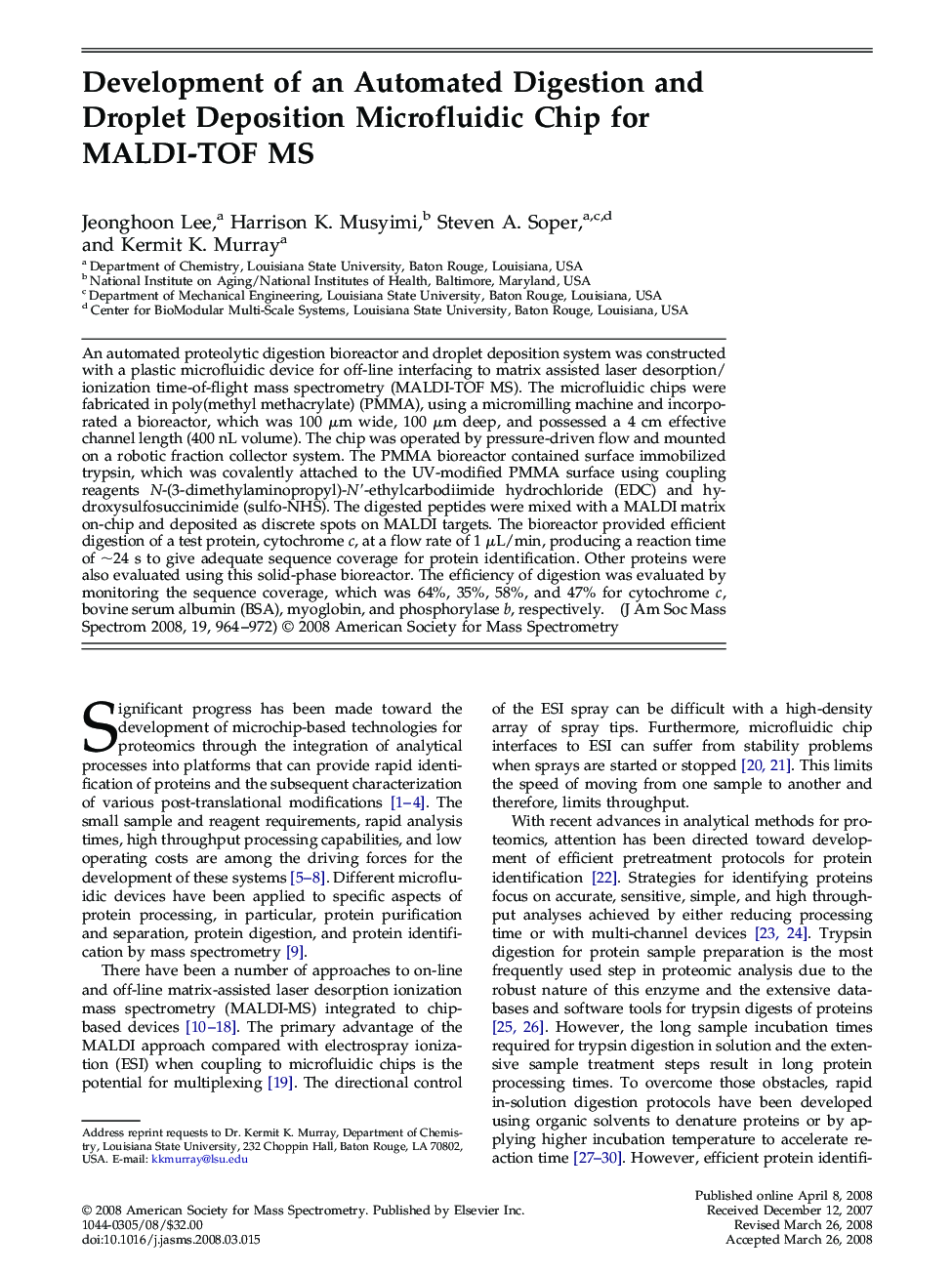| کد مقاله | کد نشریه | سال انتشار | مقاله انگلیسی | نسخه تمام متن |
|---|---|---|---|---|
| 1195316 | 964317 | 2008 | 9 صفحه PDF | دانلود رایگان |

An automated proteolytic digestion bioreactor and droplet deposition system was constructed with a plastic microfluidic device for off-line interfacing to matrix assisted laser desorption/ionization time-of-flight mass spectrometry (MALDI-TOF MS). The microfluidic chips were fabricated in poly(methyl methacrylate) (PMMA), using a micromilling machine and incorporated a bioreactor, which was 100 μm wide, 100 μm deep, and possessed a 4 cm effective channel length (400 nL volume). The chip was operated by pressure-driven flow and mounted on a robotic fraction collector system. The PMMA bioreactor contained surface immobilized trypsin, which was covalently attached to the UV-modified PMMA surface using coupling reagents N-(3-dimethylaminopropyl)-N′-ethylcarbodiimide hydrochloride (EDC) and hydroxysulfosuccinimide (sulfo-NHS). The digested peptides were mixed with a MALDI matrix on-chip and deposited as discrete spots on MALDI targets. The bioreactor provided efficient digestion of a test protein, cytochrome c, at a flow rate of 1 μL/min, producing a reaction time of ∼24 s to give adequate sequence coverage for protein identification. Other proteins were also evaluated using this solid-phase bioreactor. The efficiency of digestion was evaluated by monitoring the sequence coverage, which was 64%, 35%, 58%, and 47% for cytochrome c, bovine serum albumin (BSA), myoglobin, and phosphorylase b, respectively.
Journal: Journal of the American Society for Mass Spectrometry - Volume 19, Issue 7, July 2008, Pages 964–972